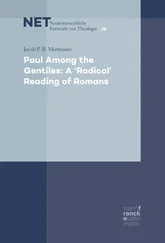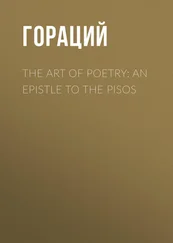Charles Gore - St. Paul's Epistle to the Romans - A Practical Exposition. Vol. II
Здесь есть возможность читать онлайн «Charles Gore - St. Paul's Epistle to the Romans - A Practical Exposition. Vol. II» — ознакомительный отрывок электронной книги совершенно бесплатно, а после прочтения отрывка купить полную версию. В некоторых случаях можно слушать аудио, скачать через торрент в формате fb2 и присутствует краткое содержание. Издательство: Иностранный паблик, Жанр: foreign_religion, foreign_antique, foreign_prose, на английском языке. Описание произведения, (предисловие) а так же отзывы посетителей доступны на портале библиотеки ЛибКат.
- Название:St. Paul's Epistle to the Romans: A Practical Exposition. Vol. II
- Автор:
- Издательство:Иностранный паблик
- Жанр:
- Год:неизвестен
- ISBN:нет данных
- Рейтинг книги:5 / 5. Голосов: 1
-
Избранное:Добавить в избранное
- Отзывы:
-
Ваша оценка:
- 100
- 1
- 2
- 3
- 4
- 5
St. Paul's Epistle to the Romans: A Practical Exposition. Vol. II: краткое содержание, описание и аннотация
Предлагаем к чтению аннотацию, описание, краткое содержание или предисловие (зависит от того, что написал сам автор книги «St. Paul's Epistle to the Romans: A Practical Exposition. Vol. II»). Если вы не нашли необходимую информацию о книге — напишите в комментариях, мы постараемся отыскать её.
St. Paul's Epistle to the Romans: A Practical Exposition. Vol. II — читать онлайн ознакомительный отрывок
Ниже представлен текст книги, разбитый по страницам. Система сохранения места последней прочитанной страницы, позволяет с удобством читать онлайн бесплатно книгу «St. Paul's Epistle to the Romans: A Practical Exposition. Vol. II», без необходимости каждый раз заново искать на чём Вы остановились. Поставьте закладку, и сможете в любой момент перейти на страницу, на которой закончили чтение.
Интервал:
Закладка:
DIVISION IV. § 1. CHAPTER IX. 1-13.
The present rejection of Israelites no breach of a divine promise
St. Paul has finished his glowing description of the position and prospects of the elect people of God. And then, by contrast, the misery of the outcast people once called elect – his own people – wrings his heart with pain. The very idea that in his new enthusiasm for the catholic church he can be supposed to be forgetting those who are of his own flesh and blood, stirs him to a profound protest. He solemnly asseverates that the pain which Israel's rejection causes him is acute and continuous. He has caught himself at the point of praying to be himself an outcast from Christ, if so be he could bring the people of his own kindred and blood into the Church. For who indeed could seem to have so good a title to be there? They are the Israelites – that is God's own people: the eye of God was so specially upon this race that He redeemed it and made it His own son 6 6 Exod. iv. 23; Hos. xi. 1.
: to them was vouchsafed the shining of His continual presence in the tabernacle 7 7 Exod. xvi. 10.
: to them, in the persons of the patriarchs and of Moses, God gave special covenants, that is to say, pledged His word to them in an unmistakable manner and repeatedly that He should be their God and they should be His people: thus in pursuance of a divine purpose they were brought under the education of the divinely given law and ritual worship: and all this with direct and repeated promises of a more glorious position in the future to be brought about by the divine king, the Christ who was to be. To them finally belongs all the sanctity which can attach to a people from having numbered among its members the holy ones of God: for of this race were the patriarchs, the friends of God; and of this race, so far as human birth is concerned, came in fact the Christ who, born a Jew, is sovereign of the universe and ever blessed God. Surely then, St. Paul implies, that this race, now that the Christ they were expecting is at last come, now that the goal of all God's dealings with them is at last reached, should have fallen outside the circle of His people and be no longer sharers in the sonship or the election, would seem a result too monstrous to contemplate. The contrast between what they were and were intended for, and what in present appearance they are, is indeed appalling.
Yet the natural conclusion for the Jew to draw, which at this point flashes into St. Paul's mind, the conclusion that God has proved unfaithful, is not the true one. No: God's word, God's promise, has not broken down. For, if the facts are looked at, it appears quite plainly that the Israel of God was never simply the Israel of physical descent, nor the children of Abraham simply his physical seed. Plainly not. For Isaac and Ishmael were equally Abraham's seed, physically considered, but for the purpose of God the promise is given only to the family of the younger son, Isaac (Gen. xxi. 12), who moreover was born, not in the mere natural order, but under circumstances of special divine promise and intervention (Gen. xviii. 10). And if in this case it be said that the younger son Isaac was the only son of Sarah, the wife and free woman, and therefore had a natural prerogative over Ishmael, yet the same inscrutable principle of selection is apparent in the next generation, in a case where there is no possible inequality of natural claim – in the case of the two sons born simultaneously to Isaac of the same mother. Prior to their birth, and prior therefore to any possible merit or demerit on their own part – so that God's absolute freedom of choice should appear quite conspicuously – the younger Jacob was deliberately preferred over the elder Esau (Gen. xxv. 23). And in fact this race of Esau, this Edom – though they were Israelites after the flesh – appear in history as something much worse than merely secondary to the true Israel; for God speaks by Malachi and declares that, whereas Israel is His beloved son, Esau, that is Edom, He has 'hated' (Mal. i. 3). No Israelite therefore who reads his scriptures (St. Paul would conclude) ought to have failed to perceive an inscrutable element in God's choice of his chosen people. He ought not to have felt in his own case, any more than in that of the first children of Abraham or Isaac, that he could be sure of membership in the people of God merely because of his physical descent.
I say the truth in Christ, I lie not, my conscience bearing witness with me in the Holy Ghost, that I have great sorrow and unceasing pain in my heart. For I could wish 8 8 Or 'pray' (marg.) literally 'I was praying.'
that I myself were anathema from Christ for my brethren's sake, my kinsmen according to the flesh: who are Israelites; whose is the adoption, and the glory, and the covenants, and the giving of the law, and the service of God , and the promises; whose are the fathers, and of whom is Christ as concerning the flesh, who is over all, God blessed for ever. Amen. But it is not as though the word of God hath come to nought. For they are not all Israel, which are of Israel: neither, because they are Abraham's seed, are they all children: but, In Isaac shall thy seed be called. That is, it is not the children of the flesh that are children of God; but the children of the promise are reckoned for a seed. For this is a word of promise, According to this season will I come, and Sarah shall have a son. And not only so; but Rebecca also having conceived by one, even by our father Isaac – for the children being not yet born, neither having done anything good or bad, that the purpose of God according to election might stand, not of works, but of him that calleth, it was said unto her, The elder shall serve the younger. Even as it is written, Jacob I loved, but Esau I hated.
1. St. Paul's earnest asseveration is very noticeable in form. It shows so much of his instinctive inward life. He lives 'in Christ,' who is light as well as life 9 9 Cf. Eph. v. 8-14.
, and to speak the truth is the very atmosphere of this new life 10 10 Cf. Col. iii. 9.
. As it comes natural to many people to say 'upon my word as a gentleman,' it comes natural to St. Paul to say, 'speaking as in Christ, who is the light.' And his natural conscience – that is the faculty of passing judgement on one's own actions, which in St. Paul's case bears witness to the truth of what he says by passing no censure on him – that too does not act of itself merely, but in the Spirit of the new life, the Holy Spirit of Christ, which inspires and ratifies the moral judgement, otherwise so liable to be degraded or perverted or silenced: his conscience bears witness with his word in the Holy Ghost. Here, then, is the whole secret of Christian truthfulness. The Christian is truthful because he lives and speaks in God, in Christ, in the Spirit.
As to St. Paul's half-expressed prayer ('I was praying,' he says, i.e. 'I caught myself praying'), it resembles that of Moses for his rebellious people 11 11 Exod. xxxii. 32.
. 'And now, O Lord, if thou wilt forgive their sin – ; and if not, blot me, I pray thee, out of thy book which thou hast written.' But St. Paul's instinctive desire is not apparently like that of Moses, to perish with his people rather than be saved without them; but to offer himself for rejection with a view to their salvation. The prayer is, as St. Paul implies, an impossible prayer, but it expresses, as hardly anything else could, the intensity of his feeling. And such intensity of feeling was natural to the deep religious patriotism of a Jew.
We may illustrate St. Paul's feeling by comparing a fine expression of a more commonplace sorrow over the ruin of Israel from a period after the destruction of Jerusalem 12 12 2 Esdr. viii. 15-16, x. 21-23. The latter passage is not spoken to God, but by one Jew to another.
. 'Now therefore I will speak; touching man in general, thou knowest best; but touching thy people will I speak, for whose sake I am sorry; and for thine inheritance, for whose cause I mourn; and for Israel, for whom I am heavy; and for the seed of Jacob, for whose sake I am troubled.' 'Thou seest that our sanctuary is laid waste, our altar broken down, our temple destroyed; our psaltery is brought low, our song is put to silence, our rejoicing is at an end; the light of our candlestick is put out, the ark of our covenant is spoiled, our holy things are defiled, and the name that is called upon us is profaned; our freemen are despitefully treated, our priests are burnt, our Levites are gone into captivity, our virgins are defiled, and our wives ravished; our righteous men carried away, our little ones betrayed, our young men are brought into bondage, and our strong men are become weak; and, what is more than all, the seal of Sion – for she hath now lost the seal of her honour, and is delivered into the hands of them that hate us.'
Интервал:
Закладка:
Похожие книги на «St. Paul's Epistle to the Romans: A Practical Exposition. Vol. II»
Представляем Вашему вниманию похожие книги на «St. Paul's Epistle to the Romans: A Practical Exposition. Vol. II» списком для выбора. Мы отобрали схожую по названию и смыслу литературу в надежде предоставить читателям больше вариантов отыскать новые, интересные, ещё непрочитанные произведения.
Обсуждение, отзывы о книге «St. Paul's Epistle to the Romans: A Practical Exposition. Vol. II» и просто собственные мнения читателей. Оставьте ваши комментарии, напишите, что Вы думаете о произведении, его смысле или главных героях. Укажите что конкретно понравилось, а что нет, и почему Вы так считаете.












